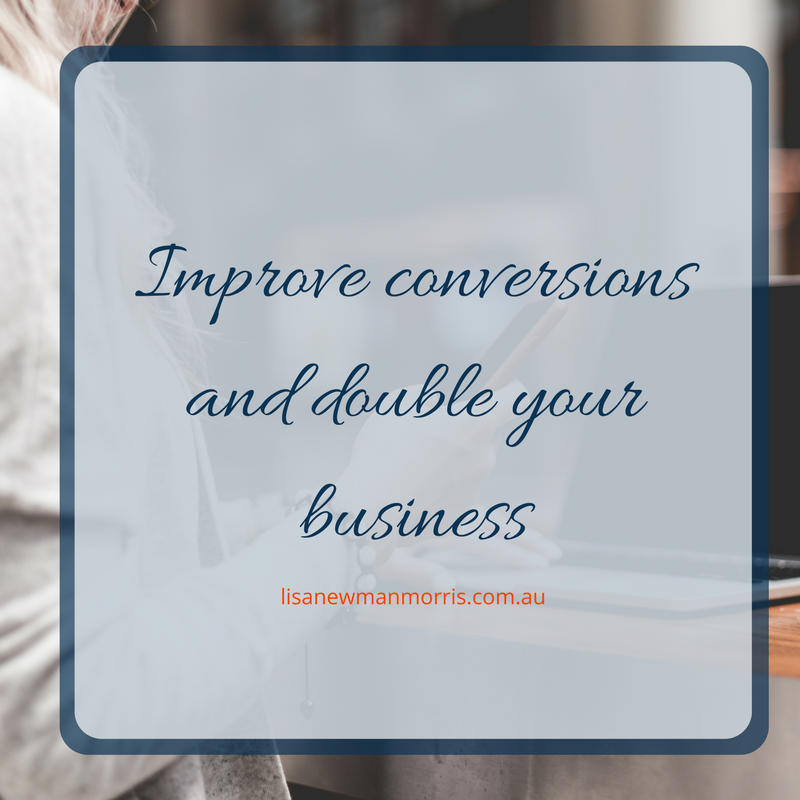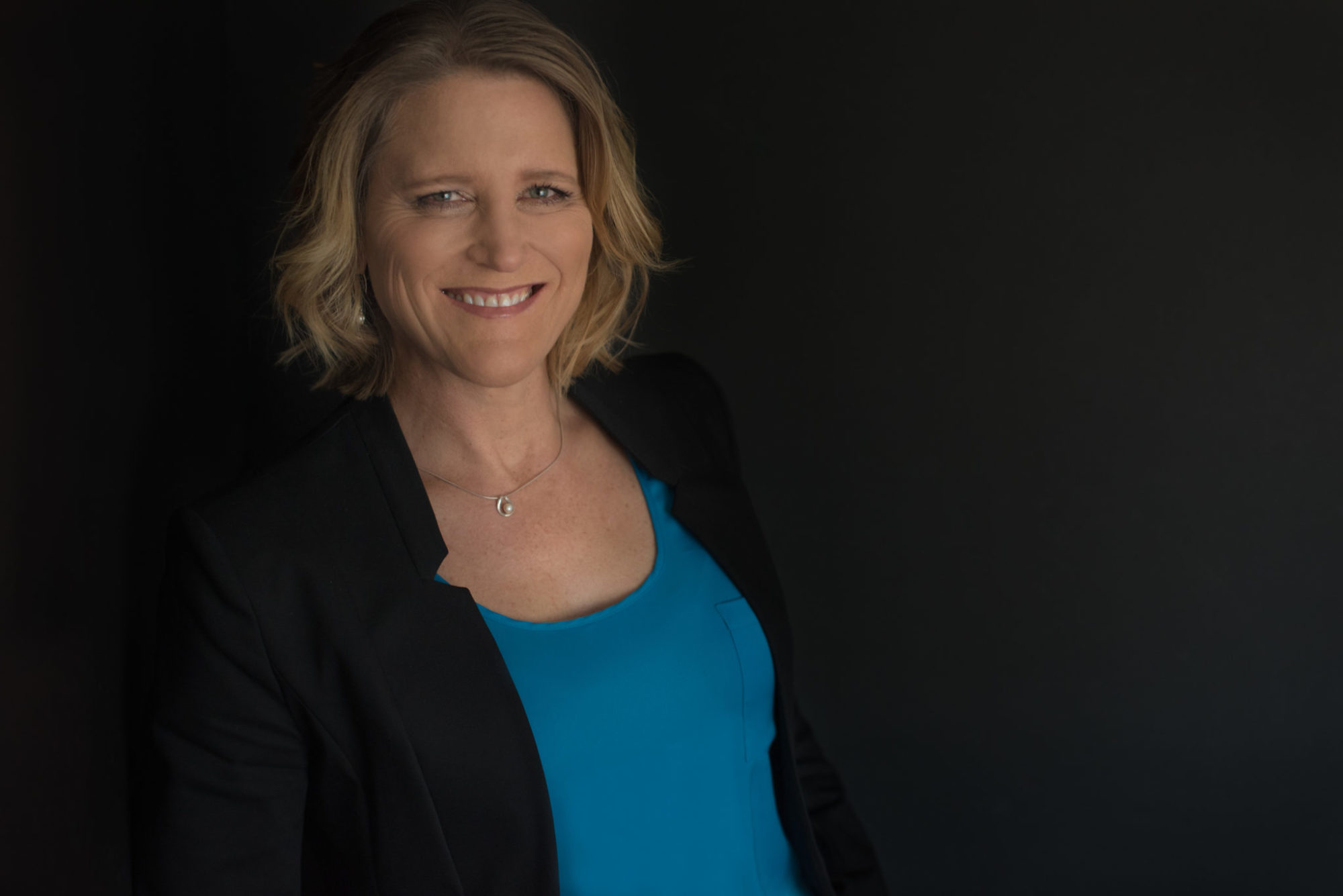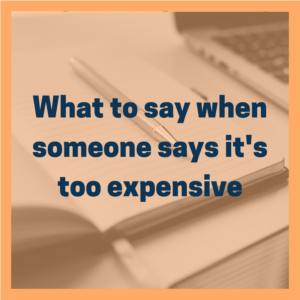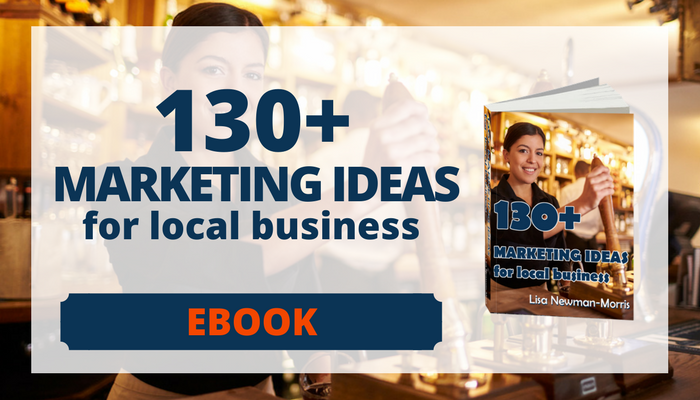How to increase sales conversions to grow your business
You put so much into your marketing. It takes time, effort and money to connect with a potential new customer. The last thing you want is to lose them to the competition right? When you understand the fundamentals behind how and why customers buy, you can significantly improve conversions and increase your bottom line.
One of the easiest ways to grow your business without needing to do any extra work, spend any extra money or find any new leads, is to increase your conversions.
What is a conversion rate and how do you work it out?
Your conversion rate is the number of people you turn into paying customers from the enquiries, leads or traffic which come into your business. Your conversion rate is the lifeblood of your business. You could have 100 new leads per day interested in what you do but if you can’t convert any of these into a paying customer, you don’t have a business!
6 ways to improve conversions and double your business Share on XTraffic means nothing if you can’t make sales
In my experience working with small business owners, there is often a great deal of emphasis placed on the number of leads or the amount of traffic your business gets. Many people who use social media as a large part of their business marketing strategy are obsessed about how many likes or how much reach they can get on their posts and their page. If you run an ad campaign, Facebook focus on the number of impressions or clicks you can get. These are valid statistics but what’s missing is how many paying customers you get from these strategies. Having ten thousand likers on your Facebook page means nothing if you’re not converting any of them to paying customers.
Related post: What to say when someone says it’s too expensive.
If you run a local business, it’s terrific if the phone is ringing each day or you’re getting large numbers of people through the door. That’s what marketing is all about isn’t it? Well, yes it is, but that’s only part of it. For every ten people who enquire in your business, how many of those become a paying customer? This is your conversion rate.

Typical conversion rates
It’s hard to give you an indication of what a typical conversion rate is because it varies dramatically. A good conversion rate for online business is between two to three percent whereas for a local serviced based business, it could be anywhere from 20 to 50 percent. Some businesses can convert much higher than this. Let’s just look at those numbers for a moment.
If you have an online business, you probably know your website traffic figures. Let’s say as a small startup business you’re getting 1000 site visits per month and your conversion rate is on the low side — it’s only one percent. That means for every 1000 visitors, you could expect to make ten sales.
If you had a goal to make 100 sales and you had a conversion rate of one percent, you would need to find 10,000 visitors. Imagine if you could double your conversions. With a goal of 100 sales, now you would only need to find 5000 visitors. Your conversion rate has a massive impact on the amount of work you need to do to generate business. You could have the same size business with half the effort, or you could have a business twice the size!
If you’re a local service based business, you would have leads contacting you via phone or email to enquire about your services. If you’re an established business, let’s say you average one new enquiry each day. That’s five per week and twenty per month on average. If you convert twenty percent of these into paying customers, that’s four new customers per month. The thing to think about is how much time, effort and money is needed in marketing to achieve twenty new customer enquiries each month. It’s a fair bit for a local small business!
But imagine if you could improve your sales approach, increase your knowledge about how and why customers buy, knew what questions to ask and how to uncover the customer’s need, better understand what happens in the buying process for the customer. Imagine if your conversions were 50 percent instead of 20 percent. To get four new customers per month, you would only need eight new leads, a much easier task. Or, if you continue your marketing efforts and still achieve twenty new enquiries, you would now have ten new customers instead of only four. Now you have a business two and a half times the size with no extra effort!
So how do you master this art of conversions? Here are six tips to help you improve your conversions and increase your bottom line:
1. Talk to the right people
It’s super important you focus on talking to the right audience and attracting the right type of people. While marketing is absolutely necessary for your business, it can be time consuming and costly. You want to make sure your investment is being spent in the right areas and getting the best result. Defining your niche is a key fundamental to business success. When we talk about conversions, this is one of the first things to look at. You could have the best sales skills in the world but if you’re talking to the wrong people, your efforts will be in vain.
2. Focus on needs and solutions
Converting a lead to a paying customer is as simple as finding the right type of person, identifying their need and providing the right solution. Ok, there’s a couple more things to it than that but essentially that’s it. I said it’s simple, but it’s not always easy. It’s simple because it’s straight forward. It’s not always easy, because you’re dealing with real people.
When you’re dealing with a new lead and aiming to convert them to a paying customer, you must focus on identifying that person’s need. It doesn’t matter one little bit how great your product or service is. People don’t buy what you have. They buy a solution to their need. If you don’t know their need, you can’t provide the right solution. Once you’re speaking to the right people, your primary focus should be to uncover their need and find out how you can help them.
3. Avoid making assumptions
It’s easy to make assumptions as the business owner in control of a buying situation. It’s natural to assume the other person thinks like you do but nothing could be further from the truth. No-one thinks like you, so you mustn’t ever assume what someone else is thinking. In fact you have no right to assume how another person thinks!
As the business owner, you are not actually selling anything. You are simply facilitating a buying experience for the customer. The decision is always the customers and you can never be sure what the customer is thinking or what is occurring outside the buying experience.
There are many common assumptions made in business. You may assume simply because you run a marketing campaign, people will buy. But people only buy when they are ready, not when you want them to. They may enquire about your services when their interest is peaked or when they identify they have a need, but they’ll only buy when they’re ready. These two events don’t always happen at the same time. Your conversions will increase when you understand the need for consistency in spreading your message and when you understand the patience required when dealing with customers.
Business owners often assume the customer is the decision maker, but often they’re not. Many people need reassurance or permission from their partner before they commit to a purchase. They may be gathering information before seeking permission and then coming back to you. In the buying process, you can improve your conversions by giving the customer time and respecting their need for seeking reassurance from someone else.
A no today doesn’t mean a no forever. If you assume because a customer doesn’t buy straight away, they’re not interested, you’ll miss out on a valuable opportunity. Conversions take time. It’s not always an instantaneous process. To improve your conversions, you must follow up, follow up, follow up!

4. Ask enough of the right questions
The right questions are the difference between good and poor conversions. The buying process is not about you, it’s about the customer. Rather than talking about your products, your services and your business, ask the customer questions. You need to ask them the right questions and ask enough questions to find out how you can help. Your goal should be to find out what your customer needs, not to talk about yourself. Whoever is talking is buying so if you don’t allow the customer to talk and give them a question to respond to, they won’t be buying. A good strategy to remember is if you catch yourself talking for more than 20 seconds, stop, and ask a question to get the customer talking.
Grab your FREE printable – 10 questions to ask your audience to find their need
5. Price is not the problem
If there’s one thing I can teach you about the buying process, it’s that price is not the problem. Despite what you might think, people do not buy on price alone. So if they don’t buy based on price, how do they buy? They buy based on value. It’s not about the price, it’s about what they get for the price, the value. If a customer tells you you’re too expensive, they’re telling you they don’t see value. Understanding this concept and knowing what to say when a client says you’re too expensive is one of the best skills you can acquire in business.
The price is not the problem. Share on X6. Build trust
Before someone can buy from you they need to know you, like you and ultimately trust you. Trust is not granted to you simply because you run a business. You must earn trust with consistent exposure (marketing) and by helping people before they buy from you. You can significantly improve your conversions by building relationships with potential customers without expectation of anything in return. When you have established trust with a potential customer by helping them for free, they are much more likely to convert to a paying customer.
In this current digital age in which our lives are ruled by social media and easy, instant access to limitless amounts of information, if you are not helping and providing relevant and helpful information for free, you’re not going to get a look in. Customers can access free information on their mobile devices, anywhere, at any time. If they’re not getting the information from you, guaranteed they’ll be getting it from another business. Whichever business is helping them consistently with free, relevant and helpful solutions to their problems, will be building the most trust and will ultimately be the business the customer turns to when they want further help.
Conclusion
Conversions are a fundamental skill in mastering the science of business success. There are only a few things you need to do right, but there are many things that can go wrong. In this course, I outline 28 common mistakes business owners make during the buying process and I teach you how you can identify these mistakes and improve your skills. When you master this process, you will connect more effectively and convert more reliably. When you understand how and why customers buy, you can sky rocket your conversions and improve your bottom line.
Connect more effectively and convert more reliably. Share on X




As a costumer I can tell you that all what you’re saying it’s true, but as a business woman I’ll tell you point number 3 is not as easy as it seems! Now that I’ve read this post I’ll try to fix this skill but it’s though
It is tough and that’s why so many business owners don’t make it. If you can learn to master these tips you’ve be in a much better position to set yourself up for success in the long run. Keep working hard!
Good advice! I don’t have an online business, but I work in retail, and I think this advice can work at my job as well.
Absolutely Patricia, as mentioned in the article the concept works across both online and local business. The concept of successful sales is universal! Thank you so much for your comment.
This is so helpful for be an a new-to-the-field entrepreneur! Thank you so much for these tips. I’m bookmarking them to refer back!
Welcome to the world of entrepreneurship Emma! All the best and thankyou for the comment.
Love the honesty of these tips!
Thank you Jenn!
Such a great post. It’s very helpful.
Thanks Jeanette, so happy to hear I could be of help.
Great advice Lisa! It’s so hard to focus on these really important thing sometimes, I just get carried away with the creative stuff.
x
http://www.nataschacox.com
Thanks Natascha. It’s easy to be passionate about the creative stuff and it’s important to do that too, but it’s important to keep your eye on the business fundamentals too 🙂
Thanks so much for this! Such an interesting read. Conversions is something I have been wanting to learn more about, so thank you!
Em || The Gratitude Butterfly
Thanks Em, glad this article could be of help.
There’s some really great stuff in this article. Thankfully, my husband is my business partner and really helps me in this area. You gotta know your own strengths and weaknesses. Right? I’m passing this article along to him to make sure we are maximizing our potential. Thank you for a well fought out article.
Definitely Erin! Great to hear you’re a strong team and thankyou for sharing the article with your husband. All the best to the two of you 🙂
This is a useful and detailed post. Have shared it with a friend who has just started up as an entrepreneur.
Thanks so much Nay, I’m sure it will be very helpful for your friend.
Great tips, thank you!
Thanks Alison, much appreciated
Nice advise should understand how and why
That’s right Nidhi, it’s very important to understand how and why people buy so you can get the best return on your marketing.
Awesome article! Book marking this and moving in to your article about what to say when the customer says you’re too expensive.
Thanks Jenn, I hope you find it really helpful 🙂
Awesome info! We all need to remember to let the client talk, we are all too busy telling them what we can do for them!
Yes yes yes Laura! We must stop doing that. Less talking, more listening. Thanks for your comments.
Thank you for posting this information… I enjoyed the tips!
Thanks Jaye, so pleased to hear you enjoyed the tips.
Love this article! Thanks for the advice 🙂
Thanks so much Tori, appreciate the comment.
Interesting post. I was particularly struck by your point that price wasn’t the issue. I’m always dropping the price on my books in the hope that will attract more buyers. Share Your World
Oh Shirley please stop doing that! It’s almost never the price that’s the problem. In fact dropping your price just encourages the wrong type of clients that are never going to help you build a strong business. You might find my free ebook helpful to establish the business fundamentals you are possibly missing – 9 Essential First Steps For Building A Successful Business.
I love your point that people buy based off of how much value they perceive your product has. I think people’s first instincts are often to lower the price of their product when it isn’t selling. Perhaps they should instead focus on proving how much value their product actually has.
Absolutely Casey, that’s very true. Thanks for your valuable insight.